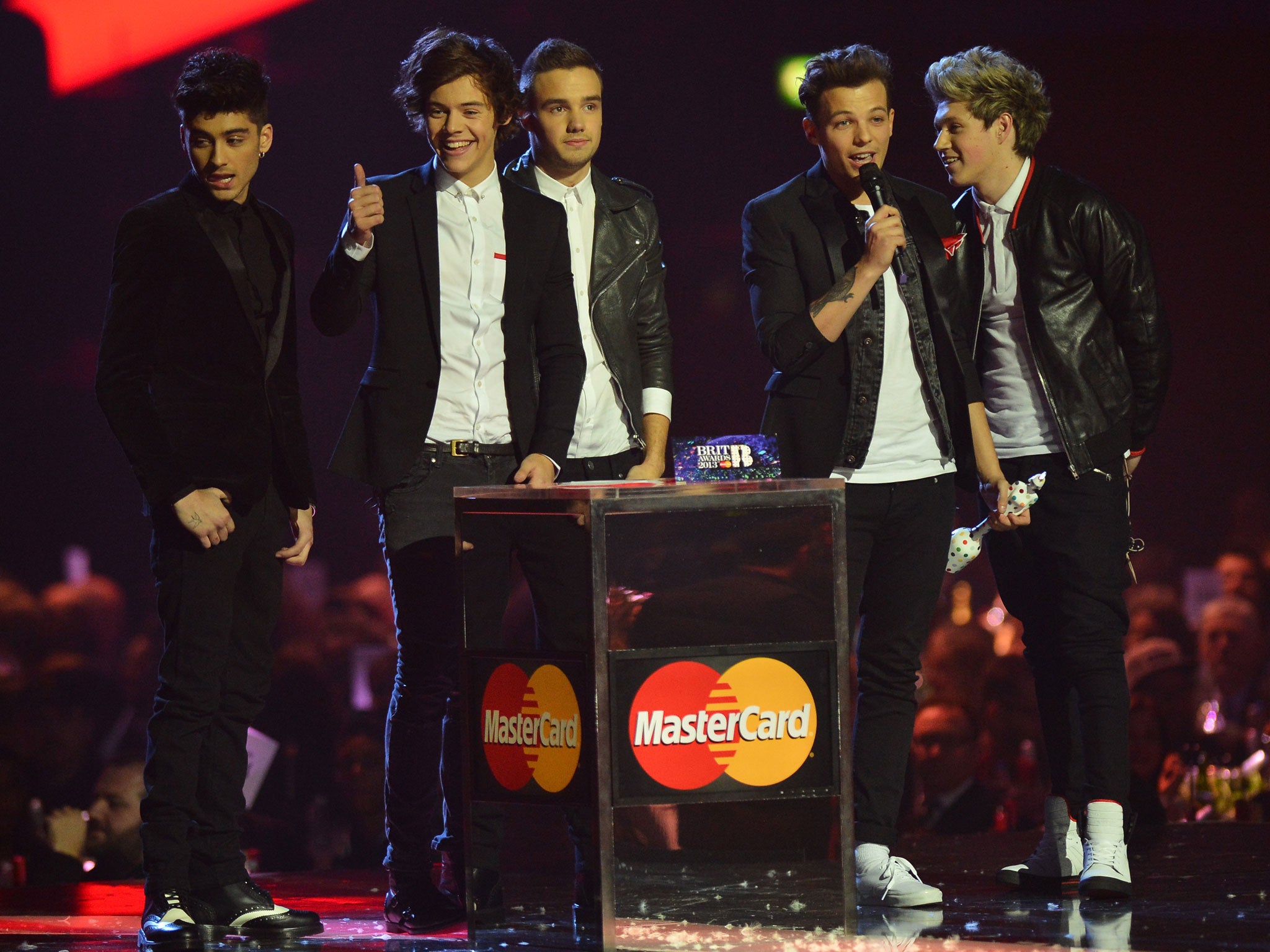Last night's viewing: Crazy about One Direction, Channel 4 Paul O'Grady's Working Britain, BBC1

Your support helps us to tell the story
From reproductive rights to climate change to Big Tech, The Independent is on the ground when the story is developing. Whether it's investigating the financials of Elon Musk's pro-Trump PAC or producing our latest documentary, 'The A Word', which shines a light on the American women fighting for reproductive rights, we know how important it is to parse out the facts from the messaging.
At such a critical moment in US history, we need reporters on the ground. Your donation allows us to keep sending journalists to speak to both sides of the story.
The Independent is trusted by Americans across the entire political spectrum. And unlike many other quality news outlets, we choose not to lock Americans out of our reporting and analysis with paywalls. We believe quality journalism should be available to everyone, paid for by those who can afford it.
Your support makes all the difference.I pity anyone who didn't have the luxury of a reviewer's pause button during Channel 4's plunge into the world of contemporary boy-band super-fandom.
A dozen ad breaks could not provide enough respite from Crazy about One Direction, a documentary as exhausting as it was startling, compelling and assaulting to the ears. That pop fans can scream and chase cars away from grotty arenas is well documented – I witnessed the Take That (part one) phenomenon as a teenager. But what has changed since then and earlier such manias is the extent to which modern media evidently heightens and toxifies an already hysterical obsession.
One Direction, X Factor losers-turned-global pop juggernaut, have the attributes necessary for success – sufficiently varied, poster-ready faces and a machine to churn out songs simple enough for them to sing and dance to. But they also have individual Twitter accounts, which they use to give their girl fans, or "Directioners", an irresistible illusion of closeness.
Concert footage showed the boys singing on a platform dangled over a crowd, their bodies tantalisingly close to thousands of upturned faces. Occasionally, a hand would be offered downwards and fleeting contact would be made. Away from the stage, Twitter is that dangling platform and the boys' tweets, which sometimes knowingly refer to fans, are those hands.
Natasha, 17, said Twitter "is like a prayer place. When you go to a prayer place you feel like you're connected to God. When you go on Twitter you feel like you're connected to 1D. You just have hope." She felt like she was part of a sect, as if that were a cool, healthy thing. But the band were more often likened to a drug. "I'm shaking like a shitting dog," Becky said while waiting at her laptop to buy gig tickets. "This is not normal for a 19-year-old girl... I wish I was a smack head or something so I'd worry about drugs not boy bands."
The high they seek is not information, much less music, but an acknowledgement that they exist. Because Twitter is such an immediate platform, not a PO Box number on a forgotten mailbag, that a reply seems attainable. So girls beg for one, some even threatening suicide or announcing the death of relatives in the hope it draws sympathy.
As we know, Twitter is also a great platform for unkindness, and a scorned Directioner is a terrifying beast. GQ staff were threatened with stabbing and worse this month after the magazine featured the band above slightly edgy cover lines. Taylor Swift, Harry's embittered ex, was the villain last night. One sweet young girl threatened to tear her eyes out and stamp on them.
Weirder still is the detailed gay fantasies that thrive online. Better for these boys to be gay than going out with a direct love rival. Meanwhile, none of these girls had boyfriends. Two things I wondered: what their parents made of all this. And, more importantly, are 1D and their overlord, Simon Cowell, fully aware of the twisted hold they have on these girls? It can't be healthy for anyone.
Lily Savage swapped rouge and a wig for, variously, a butler's suit, a bus conductor's jacket and a pair of rose-tinted specs as he toured Paul O'Grady's Working Britain. It veered from the confused (a meeting with Jean Marsh of Upstairs Downstairs fame added nothing) to the occasionally illuminating. In summary: Paul O'Grady still identifies himself as working class, but a new generation doesn't because of things like wars, technology and Thatcher. The personal stuff, like O'Grady himself, was entertaining but would have benefitted from the historical rigour and insight of Who Do You Think You Are?.
Join our commenting forum
Join thought-provoking conversations, follow other Independent readers and see their replies
Comments